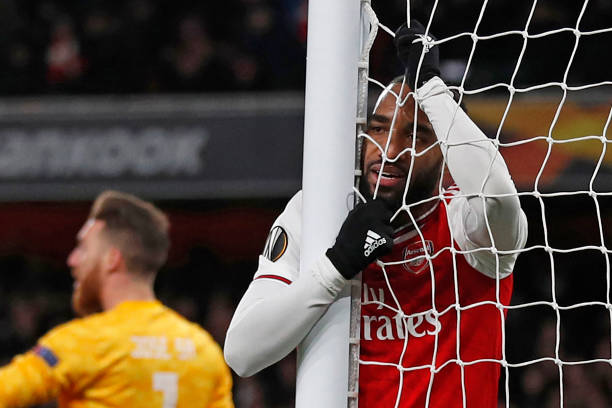Arsenal only made the last-32 of the Europa League last season but the money they earned emphases its importance, especially if they can go further in 2020/21.

The Guardian reported that they estimate Arsenal’s earnings from this season’s Europa League to be around £25-30m.
That’s despite Mikel Arteta’s side exiting the competition at the first knockout stage thanks to Olympiacos.
Arsenal did finish top of their group, winning three games and drawing two in the opening round, which helped.
It’s a timely reminder of just how important it is to make it into European competition, though. Even if that means the Europa League.

Arsenal scored with their final shot at getting into Europe with a win over Chelsea in the FA Cup final making it significantly more important than ‘just’ a trophy (that comes with £3.4m in prize money for the winner).
A year on from Arsenal’s failure to beat Chelsea in Baku to get into the Champions League, the team needed to rise to the occasion this time around and they certainly did that after a few months off playing virtual sports.
At present for Arsenal, every penny counts, and they will certainly pick up a lot of them if they can go all the way next season with Arteta at the helm.
Europa League prize money

- Preliminary round: €220,000
- First qualifying round: €240,000
- Second qualifying round: €260,000
- Third qualifying round: €280,000
- Play-off round elimination: €300,000
- Base fee for group stage: €2,920,000
- Group match victory: €570,000
- Group match draw: €190,000
- Group winners: €1,000,000
- Group runners-up: €500,000
- Round of 32: €500,000
- Round of 16: €1,100,000
- Quarter-finals: €1,500,000
- Semi-finals: €2,400,000
- Losing finalist: €4,500,000
- Winners: €8,500,000
Europa League changes for 20/21

According to UEFA, there will be a number of changes for the upcoming season because of the one just finished.
UEFA write, “With the 2019/20 season finishing on 21 August, the principal change to the 2020/21 calendar is that everything is now a little later.
“Qualifying, which had been due to begin on 25 June, kicked off on 18 August. The group stage draw will take place in Athens on 2 October with the competition proper getting under way on 22 October.
“The knockout stages will be unchanged from the original schedule.
“All qualifying ties are single-leg matches. These matches are taking place behind closed doors.
“Video Assistant Referee (VAR) will not be introduced for the group phase, as was planned. It will still be used in the knockout stage, with introduction for the group stage in 2021/22.
“The final will take place at Poland’s Gdańsk Stadium, which had been due to stage the 2020 decider. Seville, the prospective 2021 host, will now host the 2022 event.”
The Gdańsk Stadium in Poland has a capacity of 41,620 but it seems unlikely, to say the least, that it will be anywhere close to full.

